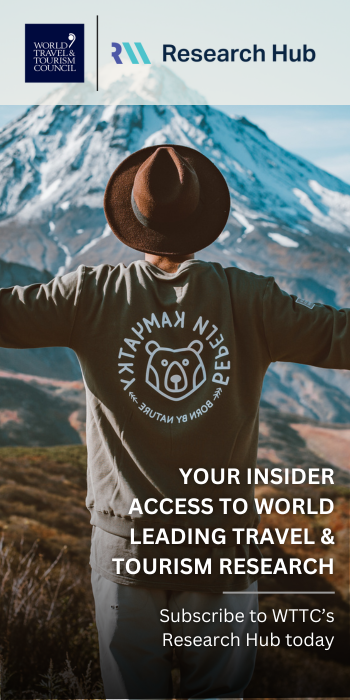How Travel & Tourism can combat human trafficking: A four-pillar framework

Human trafficking remains one of the most pressing global human rights challenges, affecting over 40 million people worldwide. As a sector often inadvertently used in trafficking operations, Travel & Tourism holds a unique position to combat this crime. Recognising this, the World Travel & Tourism Council (WTTC) developed a robust framework to address human trafficking through four pillars: awareness, education & training, advocacy, and support. Here's how this framework can galvanise the sector into action.
Sign in to access actionable insights
Human trafficking remains one of the most pressing global human rights challenges, affecting over 40 million people worldwide. As a sector often inadvertently used in trafficking operations, Travel & Tourism holds a unique position to combat this crime. Recognising this, the World Travel & Tourism Council (WTTC) developed a robust framework to address human trafficking through four pillars: awareness, education & training, advocacy, and support. Here's how this framework can galvanise the sector into action.
Awareness: Shedding light on a hidden crime
Awareness is the cornerstone of prevention. Educating industry stakeholders and consumers about the realities of human trafficking can foster greater vigilance and proactive intervention. Organisations like Marriott and Airbnb exemplify how businesses can raise awareness effectively. Marriott has trained over 825,000 associates to identify and respond to human trafficking and aims to train 100% of its staff by 2025. This training is not only internal but also shared with the broader hospitality industry through partnerships like ECPAT-USA.
Airbnb, on the other hand, leverages technology to detect signs of exploitation. Collaborating with organisations like Polaris, the company uses data responsibly to flag suspicious activity while respecting user privacy. By engaging hosts and guests in awareness campaigns, Airbnb amplifies its reach in preventing trafficking.
Education and training: Building a knowledgeable workforce
Training equips employees and travellers to recognise and report trafficking. Companies such as Emirates and Hilton demonstrate the importance of tailored, role-specific education. Emirates integrates anti-trafficking training into its operations, ensuring cabin crew, check-in staff, and pilots can spot signs of exploitation. Meanwhile, Hilton employs risk mapping tools and due diligence to address vulnerabilities in its supply chain.
Collaborative initiatives also enhance training efficacy. For instance, the Carlson Family Foundation funded anti-trafficking training modules for travel agencies and event professionals. These resources are now used across the industry, fostering a unified response.
Advocacy: Strengthening policies
Advocacy bridges the gap between industry efforts and government action. By uniting stakeholders to push for robust policies, the sector can drive meaningful change. Governments like Argentina and Colombia have linked tourism and anti-trafficking measures, providing templates for global collaboration. In Argentina, the Ministry of Tourism trains industry workers to prevent trafficking and enforces hotel regulations to safeguard vulnerable children. Similarly, Colombia’s Tourism Ministry works with law enforcement and neighbouring nations to combat trafficking effectively.
Private sector advocacy also plays a pivotal role. The WTTC encourages its members to support survivor-led approaches, ensuring that policies reflect lived experiences. Such initiatives not only enhance legislation but also empower survivors, offering them opportunities for rehabilitation and employment.
Support: Rebuilding lives
Support focuses on providing survivors with the tools they need to heal and reintegrate. From employability training to psychological care, comprehensive programmes are essential. Marriott’s partnership with the Global Fund to End Modern Slavery (GFEMS) exemplifies this pillar. Together, they developed job readiness training for survivors, aligning rehabilitation with economic empowerment.
Human trafficking is a complex, clandestine crime, but the Travel & Tourism sector is uniquely positioned to combat it. The sector has an opportunity to rebuild with a focus on safety, inclusivity, and sustainability. The WTTC’s framework provides a roadmap for achieving this vision, ensuring that the sector becomes not just a facilitator of journeys, but also a guardian of human dignity.

















